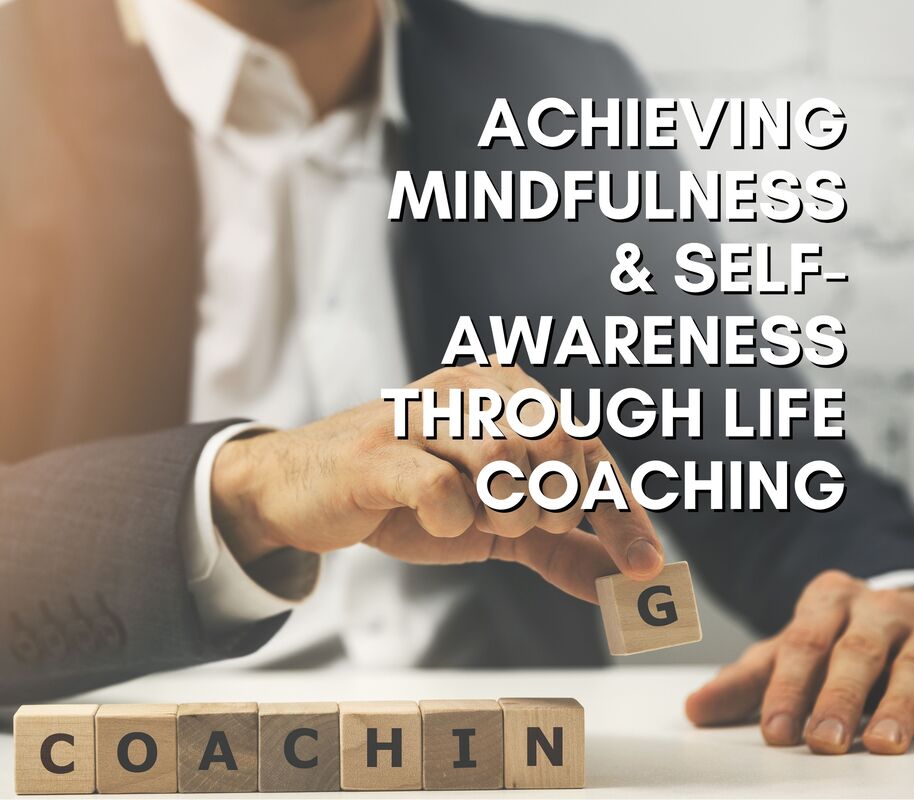- Home
-
Qualifications
- Diploma in Nutrition and Health Coaching
- Womens Health and Wellness Coach Certification
- Certified Coaching Professional Program
- Diploma in Coaching for Lifestyle & Wellbeing Management
- Holistic Wellness Coaching Program
- The Ultimate Triple Qualification
- Health Coaching Electives
- Wellness Coaching for Professionals
- Coach Gap Training
- Professional Certificate in Meal and Menu Planning
- Accreditation, Registration & Insurance Options
- Degree & Diplomas
- Short Courses
- Testimonials
- Enrol
- FAQs
- About
- Contact
- Login
- Things We Do
|
Mindfulness and self-awareness are two crucial elements for achieving personal growth and fulfillment. However, in today's fast-paced world, it can be challenging to cultivate these qualities without intentional effort. This is where life coaching comes in. Life coaching is a powerful tool that can help individuals develop greater self-awareness and mindfulness, leading to a more meaningful and fulfilling life. In this article, we'll explore how life coaching can assist you in achieving mindfulness and self-awareness, and how these two qualities can positively impact all areas of your life. Understanding mindfulness and self-awareness Mindfulness and self-awareness are two related but distinct concepts that are essential for personal growth and overall wellbeing. Mindfulness involves paying attention to the present moment without judgment, while self-awareness means having a clear understanding of one's thoughts, emotions, and behaviours. Each of these qualities can help you develop a greater sense of clarity, focus, and resilience in the face of challenges. One way to understand the difference between mindfulness and self-awareness is to consider their opposite states. The opposite of mindfulness is mindlessness, or ‘auto pilot’, where we go about our daily lives without being fully present or aware of our surroundings. The opposite of self-awareness is self-ignorance, where we lack insight into our own thoughts, emotions, and behaviours. In this state, we’re often unaware of how our mindset impacts ourselves and others. While mindfulness and self-awareness are distinct, they are also interrelated. Mindfulness can help you develop greater self-awareness by providing a framework for observing your thoughts and emotions without getting caught up in them. Self-awareness, on the other hand, can help you be more mindful by increasing your understanding of your own mental and emotional patterns. The benefits of mindfulness and self-awareness
Techniques for developing mindfulness and self-awareness Developing mindfulness and self-awareness requires intentional effort and practice. Here are some common techniques that can be used to cultivate these qualities:
How life coaching can help you achieve mindfulness and self-awareness Developing mindfulness and self-awareness is often viewed as a personal journey. However, working in partnership with a life coach can give you space to access deeper levels of emotion, address underlying beliefs and discover which actions may help you achieve mindfulness on a day-to-day basis. Here are some ways in which a life coach can support you in cultivating mindfulness and self-awareness:
Final thoughts Self-awareness and mindfulness are two foundations of mental and physical wellbeing that should not be overlooked. Anxiety, fear, depression and discontentment can all be relieved by remaining present in the moment and becoming innately aware of your thoughts, feelings and behaviours. Incorporating habits that enhance and cultivate these feelings can set you up for success. Journaling, meditation, yoga, exercise and breathwork are tools that can add a splash of mindfulness to your day and bring awareness to the connection between mind and body. Working with a life coach will provide you with a non-judgmental space for deeper learning, self-discovery and creation of mindful actions. You will have the chance to become aware of how your behaviours, feelings and emotions impact yourself and the world around you. AuthorJames King from Life Coach Gloucestershire is a professional Life and Career Coach, Board Certified UKIHCA Health Coach and owner of Life Coach Gloucestershire. James is obsessed with supporting your journey towards the best version of yourself. His passion lies in improving the lives of others through the power of coaching.
0 Comments
Leave a Reply. |
AuthorsBev Whyfon; Bev's Healthy Food Archives
July 2024
Categories
All
|
|
CONNECT WITH US
|
- Home
-
Qualifications
- Diploma in Nutrition and Health Coaching
- Womens Health and Wellness Coach Certification
- Certified Coaching Professional Program
- Diploma in Coaching for Lifestyle & Wellbeing Management
- Holistic Wellness Coaching Program
- The Ultimate Triple Qualification
- Health Coaching Electives
- Wellness Coaching for Professionals
- Coach Gap Training
- Professional Certificate in Meal and Menu Planning
- Accreditation, Registration & Insurance Options
- Degree & Diplomas
- Short Courses
- Testimonials
- Enrol
- FAQs
- About
- Contact
- Login
- Things We Do



 RSS Feed
RSS Feed
